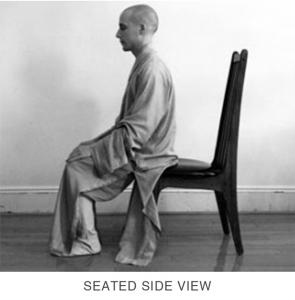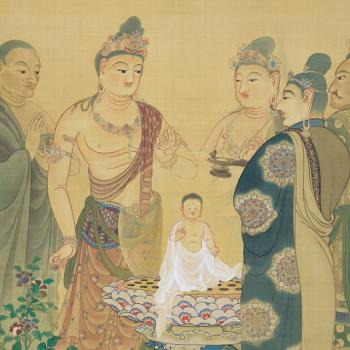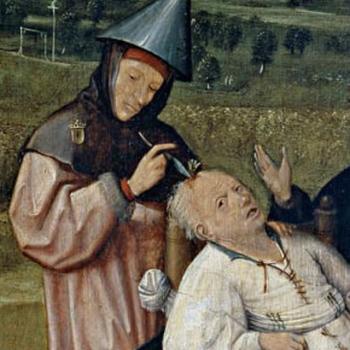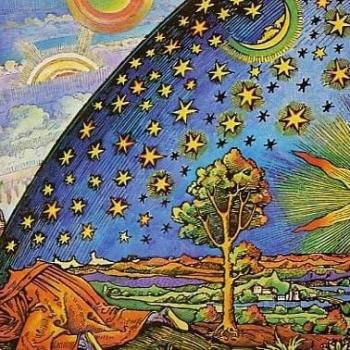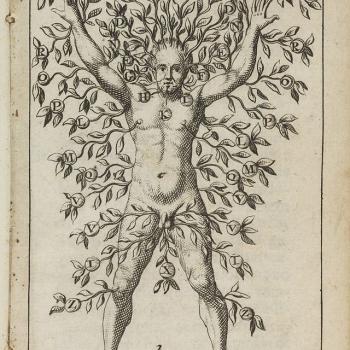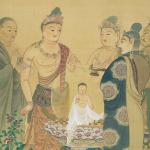The Case
Nanquan said, “Mind is not Buddha; knowing is not the way.”
Gateless Gate, Case 34
On Facebook I find myself confronted with a lot of knowing. Especially when it comes to politics. People speak with absolute certainty. And it usually drips with various forms of hostility toward those with whom that person disagrees. These hostile reactions manifest in ways from condescension, to mild antipathy, to outright hostility.
These “discussions” around politics quickly move to name calling, and in other circles I understand threats of physical violence. I don’t pretend to be above this fray. My visceral annoyance with those who offer views at significant variance to mine actually elicits all those responses others have. Although it is my intention that my Facebook persona be a little bit more gentle and a lot more tolerant than I fear I am in “real life.” So, at least I hope, I look a bit less perturbed by what shocking things, at least to me, come out of people’s mouths, or, I guess, their fingertips.
I could from here launch into a little disquisition on the value of “faking it until you make it” as something of a spiritual practice. Could be helpful to any number of people. Me, for one. And, I try. But, instead of going in that direction, I think revisiting the primary posture of authentic Zen might be in order. It is what the case, as we call a particular koan, is calling us to.
This case dates to the Ninth century and was pulled out of a larger conversation recorded in the Record of Zhaozhou.
Once when still studying with his master Zhaozhou asked Nanquan, “Mind is not Buddha; knowing is not the way. Is this correct or not? Naquan replied, “It is not correct.” Zhaozhou continued, “Then what is my error? I’m desperate to understand.” Nanquan replied, “Mind is not Buddha; knowing is not the way.”
A classic Zen response. And it easy is to see it as one more opaque encounter dialogue between Zen master and student. Small wonder people sometimes think Zen teaching is one non sequitur after another. But, it isn’t. Rather it points to something. And with that pointing, there’s an invitation to come along.
Returning to my rumination on political certainty. We come to our political views for many different reasons. Most of us like to think we come to our views rationally. Sadly, there is too much evidence to the contrary. People who appear to be of good will and similar intelligence are given facts on the ground and then come to diametrically opposed views.
This can be distressing to notice. But this is no invitation to inaction. Because we se there are consequences to everything we do.
Our ancestors on the Buddha way throw in that there are actually consequences to everything we think, even everything we intend. This doesn’t leave a lot of wiggle room for us. Instead it points us to lives that include an astonishingly complex set of relationships where everything that is, is the result of a multitudinous gathering of conditions. Here that whole question of free will trots out. How can there be any freedom of movement when everything is the consequence of other things coming together?
Well, there is yet more to the mess that is our lives, that is this existence. Each moment as it arises within our human existence, there is an invitation to opening. And out of that opening, an opportunity to shift the flow of actions, the play of consequences.
This is the promise of our way. But, why should this be so? The Buddha simply asserts how fortunate it is to be born human with this capacity. Well, he does offer some theories of mind that attempt to explain it. And we can observe how our human ability to sort and predict has put us in charge of this planet. Okay, that and our opposable thumbs. Wonders that they are.
But specifically to that ability to notice. There is some magical moment of human seeing, of human noticing. In our way the wonders of that moment are extolled with magical stories. Sometimes over the top. And always worthy.
You and me. There is no escape from the flow of cause and effect. And, there are moments, fleeting, and usually occluded, where we see. We notice. And, however slightly, we can shift.
What is especially wondrous in this is that it has several faces. It’s principal purpose in our way is to find who we are as we are in all our messiness and our glory. And the promise of the Zen way is that this sets the heart at ease, bringing a knowing of joy beyond words.
It is that.
But, it also has what we can call “real world” consequences. For me I’m on Facebook with my analysis and tastebuds and memories of that moment when I realized there is a forced choice in our lives. With whom are we going to stand? With whom am I going to stand? And, with that I bring pragmatic tastebuds, a visceral concern with how to actually achieve as much for the world, my neighbors, myself as I can while seeing actual constraints.
I feel a confidence in this view that leads me to choose my involvement within this broken oligarchic republic that promises so much and delivers so little. And, it leads me to support one political party over another. And it leads me to look with interest and even excitement at some candidates and horror at others.
And. And. And. By throwing myself relentless onto the pillow, by bringing that perspective of interdependence and a certain freedom within it back to the front of consciousness, and then back again into the moments of my lived life, I find a space. There’s not a lot to that space. But, it includes a knowing that I don’t have the full picture. I don’t see it all. I am constrained.
And I see it is also the very place where I find my saving, my awakening, my life.
So, young Zhaozhou faces it all. And he comes up with a summary phrase of what he understands. And he asks his teacher, first by saying his summary.”Mind is not Buddha; knowing is not the way.” But, he then adds, “Is this correct or not?”
That little extra is both a problem and the gate.
Mind, Buddha, Way, and yes, Not, are words. Just words. But magical words, as well. Maybe especially “not.” But, all of them. And then along for the ride there’s that great longing to know, that great desire to be whole and healed.
So his teacher the beloved Nanquan cuts through it all. He points for his student, and he points for me, and he points for you.
We must act. We have no choice but to be here and the very being here there are consequences. Action or no action each bring about consequences. As a citizen of a republic, however flawed, however much it betrays its ideals, I am still called into some sort of engagement. Engagement which will have consequences.
What do I do? And, of course, what do you do?
Wumen who took the conversation apart and simply presented the response, inviting you and me into the dance, then added a little hint of a sermon.
“It should be said of old Nanquan that in his dotage he has lost all sense of shame. Opening his mouth in a cloud of bad breath he exposes the shame of our way. Few appreciate his generosity.”
Zen rhetoric. Abuse as praise. And the hesitation it brings is a good thing. We’re invited to let go of our attachments to those words. Buddha. Mind. Way. Not. Politics. Conservative. Liberal. Radical. Capitalist. Socialist. Whatever our favorite word might be. And, that mess, that dirtiness, that bad breath not merely conveys the truth – it is the truth. Buddha. Mind. Way. Politics.
Here we are. Here I am. Here you are.
There is no other place.
So, hold it gently, let it hold you gently.
And from that gentle place, reach out into the world…


